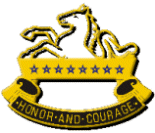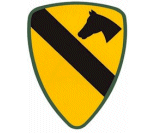DATELINE: 10MAR07 LSA ANACONDA
Dear Friends,
I want to apologize ahead of time for the length of this update and for its lateness. I would tell you all the details of why it is late, but it would soon seem like a litany of failure and casualties. We will get to the casualties, and there is a real human cost behind the losses that we or any other unit takes. I also want folks to understand that our soldiers continue to do the right things, exercise restraint, and keep each other safe. I admire their daily acts of courage. As a chaplain, I do not go to the places where they go, staring into the abyss, engaging a rather devious, hypocritical, and ultimately evil enemy that does not care who pays the price for their dogma. It would be easy for our soldiers to get bitter, or to let hate overcome any sense of reason. Reprisal could soon replace deliberate missions if our soldiers reacted in any other way. This is why they amaze me. They have pushed past the threshold of reasonable behavior from the enemy yet have remained honorable in their actions. In between the daily dose of Anna Nicole Smith or the feud between Donald Trump and Rosie O’Donnell, there are real human beings triumphing over evil and the random acts of violence that seem to breathe over this land. This is their story.
Hypocrisy
We will hear in the news about the great piety of our enemy. We will soon believe that he fights the decadence of the West in order to obtain a more pure form of Islam. In fact, as he recruits in the suburbs of Dearborn, MI; of Bakersfield, CA; of London and of Paris, he will tell easily-influenced and angry young men that the media filth of the West has corrupted their world, leaving the door wide open for their ultimate planned conquest of all things non-Muslim and non-Arabian.
Well, here is a tad bit of reality about their true intentions and motives. Permit me to let you look behind the emerald screen to reveal the true “Oz” of these pious freedom fighters. We have discovered, in our area of operations, Al-Qaeda or Al-Qaeda linked organizations running brothels, liquor stores, and distributing hard-core pornography. We know they fund their operations by selling opium in Afghanistan. Now they will tell you that this is done to sell to the infidel the sinful materials that corrupt, but it is interesting that we keep finding it in their personal possession. These pure men of the faith use their piety to gain control and power. They might sport their robes and long beards as their proof of their allegiance to Allah, but they seem to enjoy sinning as much or more as the next guy. I only mention this because we tend, as Americans, to accept every bit of news presented to us hook, line, and sinker. As I write this, young college-age, Iraqi women are entering into temporary marriages (some as short as a few minutes) in order to gain money for school. Anywhere else in the civilized world this is called prostitution, but here it is called being faithful to one’s religion.
SGT Jeremy Barnett
Two weeks ago we lost another soldier to combat operations. SGT Barnett died when a piece of shrapnel struck his head after an IED exploded under the vehicle next to him. SGT B was very outgoing, and had soon made inroads into the company to which he had just been assigned. He was funny and always eager to serve others.
I was with him the entire time he was at the Combat Field Hospital (CASH). I watched them do surgery on his head to save his life. I know currently there is a great deal of concern being expressed over Walter-Reed and other military medical facilities, but the doctors at the CASH are the finest in the world. They did all they could for this young sergeant. Eventually they had to make a decision to move from treatment to making him comfortable. All the while, I made sure that we respected his religious background, and I prayed constantly for his well-being. The hardest thing for me as a chaplain was to watch his friends and his chain of command come in to see him for the first time after the surgery.
The amazing thing about the CASH is that, while it is swarming with senior NCOs and officers, most of them Air Force, they go out of their way to make sure that the needs of the patient’s friends are met. I watched as a LTC [editor's note: LTC=Lieutenant Colonel=senior-ranking officer] asked a SPC[editor's note: SPC=Specialist=junior-ranking enlisted soldier] if he needed anything. I have not seen such compassion in any hospital I have ever visited. The CASH here at LSAA is the busiest American trauma hospital in the world, yet the medical personnel still take the time to discreetly weep over the patients they cannot save and do the best they can for the patients and their friends at the hospital. In the background, in the midst of all this care, is the never-ending sounds of the helicopter rotor blades, signaling that more casualties are on their way.
War Is Sin
There is no such thing as a good war. War might be justified. War might be necessary to stop a greater evil, but when people resort to killing each other to solve problems we have failed God. If anyone wants to disagree with this bold statement, they can come with me to visit the ICU ward that houses all of the Iraqi children wounded by this conflict. Most of these children have been wounded by the enemy. The enemy believes that if these innocents die in jihad they will go to the top levels of heaven anyway. I wonder if anyone asked their mothers if they had an opinion. I have, unfortunately, been all over the CASH, but the ward that still breaks my heart the most is not filled with soldiers but is instead filled with wounded, sometimes limbless, children who look at you with the faces that ask “why does this happen?” The real shock comes when these children begin to accept their fate with the stoicism of an adult, signaling forever and all too soon the death of a childhood they should have been able to enjoy.
Care of Casualties
Again, there has been much talk of how bad things are going at Walter Reed. I cannot speak to that issue. What I can say is that our soldiers receive the best care that they absolutely can here in the field and at the CASH at LSAA [editor's note: Logistical Support Area Anaconda]. The first people to care for our wounded are their buddies. Nearly everyone has been trained as a combat lifesaver, and we all receive periodic refresher courses on what we need to do in case of trauma. After us, our platoon level medics come next. I know of two instances where our platoon medics saved the lives of our soldiers. And they do this, by the way, while receiving fire from the enemy in very hostile situations. After our medics we have either our aid station or the flight medics themselves who travel on the medevac helicopters. Our aid station has one doctor and one physician’s assistant, plus numerous NCOs and enlisted medics who have worked through multiple deployments. The flight medics are the best in the world, and they can treat a patient while they are moving to the CASH. It usually takes less than fifteen minutes for the medevac helicopters to arrive. The birds land directly at the CASH, where the patients are moved immediately into the ER. The CASH has all the modern conveniences of a trauma hospital in a multi-tent complex. Meanwhile, members from the soldier’s chain of command all the way up to the battalion commander, XO, and sergeants major are usually there to be with the soldiers. In the case of SGT B, I was with him throughout the entire surgery, and either he or his buddies were holding his hand while he was in ICU waiting to fly back to Germany.
Hope
Returning to SGT B, we flew him back to Germany so he could be with his family when they decided to take him off life support. It also gave his family members the opportunity to decide they wanted to donate his organs. Today, because of the generosity of a family and the untimely death of a young soldier, a 51 year-old European man has a new heart. SGT B’s mom, a RN, was able to bathe his body as they prepped it for surgery. His gift of life to another human does not lessen the grief of his family, but it does speak volumes about the character of our soldiers and our “common” people. I think this might be more newsworthy than Britney Spears shaving her head.
Dog Ministry
After one of her team members received a serious injury, I was speaking to one of our grieving soldiers, trying to comfort her. He was sent home after receiving wounds to his legs during one of our operations. I was doing my best to listen, trying to put some sort of theological spin on her grief, when a dog walked by us. The dog, which belongs to the Special Forces detachment and guards their compound, had come over for his daily scratch on the head. The soldier immediately walked by me and walked up to the dog to pet him. I looked over at CPL C and told him that the dog had done more good and more ministry in five minutes than I could have possibly done in an hour. I gave him a pat, too. If you cannot beat them, join them!
CSM Mellinger
As CPL C and I were waiting with SGT B, trying to do the best we could for his friends, a CSM (Command Sergeant Major) started talking to CPL C. A CSM is a pretty big deal. He is the NCO equivalent of at least a BN CDR [editor's note: BN CDR=Battalion Commander]. Because of their seniority, CSMs have been around awhile, and it bodes well for everyone to a.) listen to them, and b.) keep them happy. They are like everyone’s surrogate mom, but the surrogate mom who is more Spartan than Martha Stewart. CSM "Mom" is not happy, for example, when you are late, out of uniform, and your weapon is not clean. I try to avoid an angry CSM due to the high risk for collateral damage.
Anyway, CSM Mellinger is speaking to CPL C, and I am thinking that I have seen him before. The reason I saw him before was that he is the head CSM for all of Iraq: translation—he is GEN Petraus’ counterpart. He happened to be at the CASH checking out the entire process of how soldiers are treated. He went with the casualties to the freedom flight (the flights taking patients to Germany). SGT B’s squad, myself, and CPL C helped carry in SGT B, and I said the prayer for all the patients and the doctors on the flight. Every critical patient has three medical personnel (flight nurse, pain specialist, and doctor) assigned to them during the trip. Once they arrived in Germany, CSM Mellinger changed his orders so he could escort the family to see SGT B. All these things he did not have to do. It meant a great deal to our soldiers because it was genuine and gave us the feeling that someone higher up the chain or command cared about what was going on at the pointy tip of the spear.
Lack of Letters; Adopt-a-Chaplain, Armed Forces Support Coalition, Soldiers Angels
As I type this out I am looking at the organized pile of letters that I need to reply to. I am still trying to find time to write to two little girls who wrote me in December. I want to assure you that CPL C and I are doing the best we can to catalogue and post all that we receive. Since we bounce between three FOBs it is hard to find a block of time to address the admin issues. The other problem is that we have been involved in fairly consistent combat operations for the past two months. Whenever we have soldiers in need of ministry, this takes precedence over the notes back. Please know that our soldiers are receiving the items. We are passing out supplies to the Iraqis, and your donations are making a difference. Another problem we have run into this time is that we are limited to what kind of pictures we can take outside our FOBs. Due to some fairly irresponsible picture taking and posting, the Army has understandably clamped down on personal cameras. I just want you to know that all the letters will get answered (eventually), and that we appreciate your support. The items are not disappearing into the ether.
Chaplain Sculpture
Our mechanics gave me the coolest gift I have ever received in the military. It transcends any medal or award. One of their soldiers has been working on his welding skills, so he started taking scraps of metal, bolts, and nuts and began to make sculptures of infantrymen and mechanics. They usually called them the “disgruntled mechanic” or the “disgruntled infantryman.” They even came complete with a cigarette in their mouths. I remarked how creative they were, and I mentioned that they should make more and try to sell them. They thought it was a good idea but reminded me that the Army would probably frown on them profiteering off its supplies. Well, unbeknownst to me, they made a sculpture of a not-disgruntled chaplain, complete with Kevlar and Bible. I will keep that on my desk wherever I go. When soldiers give you a pat on the back like that, you can go anywhere and do anything for them.
Handkerchief
Before I left, I purchased a digital camouflage bandana with Psalm 91 written on it. I had Heather, her sister, my boys, and my nephew sign it. The bandana is probably the most valuable thing that I carry. Besides helping me pray the psalm before I roll out on a CLiP, it has dried the tears of many grieving soldiers. Literally baptized with blood, sweat, and tears, it has taken on the sacredness of a holy relic. It will be something I will probably carry for the remainder of my life, tucked away somewhere. A thing to remind me of the nobility of the people I have served with over here.
Grief
I will close with these thoughts on grief. One of the most difficult parts of my calling is to watch other soldiers grieve the loss of their friends. It has been especially tough for me to watch our BN CDR and CSM grieve. I remind myself and our soldiers that they grieve for the entire battalion, and all the memories of past losses come back to haunt them during these very difficult times. As WH6 reminded me, they can grieve but cannot break, for as they go so goes the battalion. I have always believed that a mark of heroism is when ordinary people continue to act courageously despite overwhelming odds and the lack of an ensured victory. Despite all that has happened, our leadership continues to believe in our mission and in our soldiers. I find that comforting, because even chaplains have doubts at times. As we grieve our losses, it is my prayer that will not remain unshaped by them, but that God will find a way to use them for good.
Signing Off
God bless you all for keeping us in your prayers and for supporting us. You are never far from our thoughts. Thank you for remaining faithful to us and for not forgetting about the great men and women who serve.
Gratia et Veritas,
Warhorse Archangel






